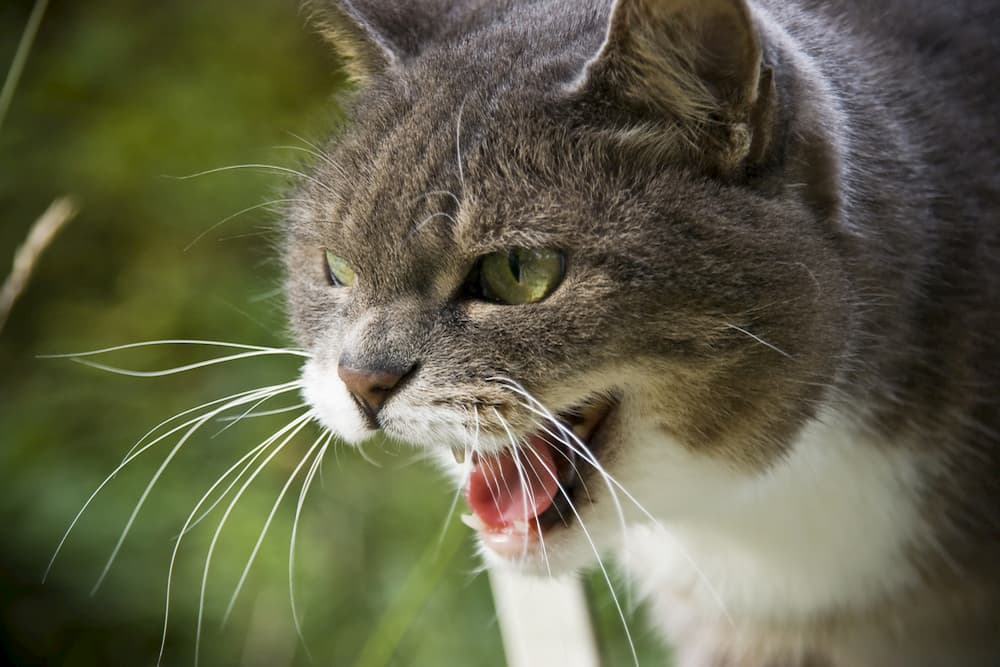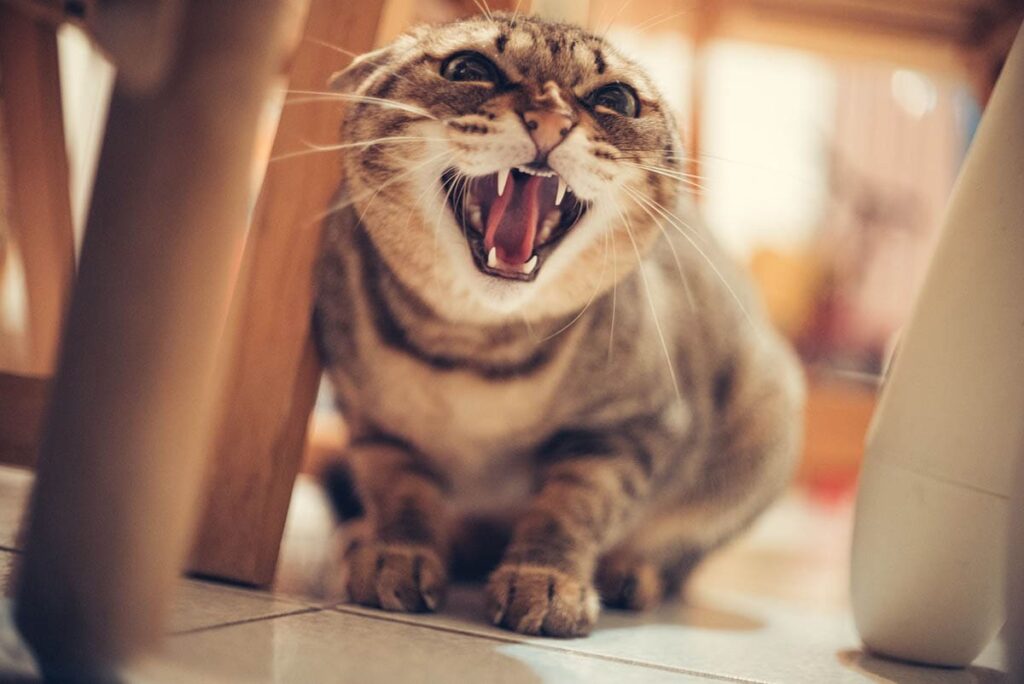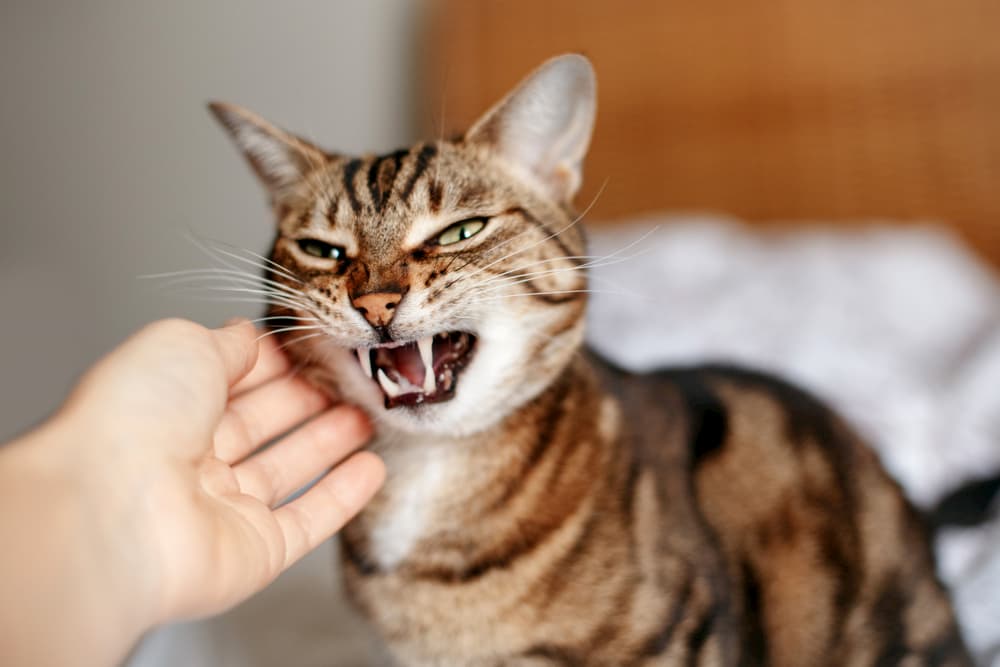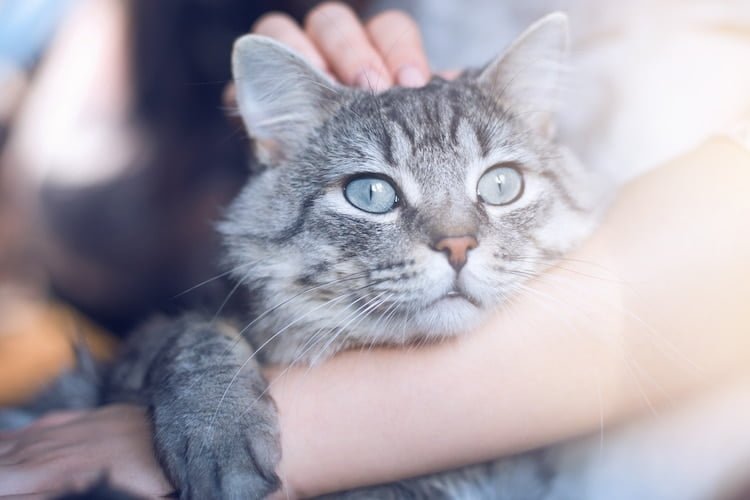How to Calm Down a Hissing Cat

Cats are known for their playful and affectionate personalities, but sometimes, their behavior can become aggressive. This can be due to various reasons, such as fear, anxiety, or the perception of a threat to their territory. One of the most common signs of an aggressive cat is hissing. Hissing is a way for cats to express their displeasure and warn others to stay away. If you have a hissing cat, it’s important to understand the causes of their aggression. Understanding how to calm down a hissing cat is just as crucial.
Why do Cats Hiss?

When a cat hisses, it indicates that the cat is upset, angry, or scared. New pets, visitors, or other cats in the home often trigger territorial aggression, causing the cat to hiss. Additionally, if a cat is experiencing chronic conditions like arthritis or an injury, handling it may result in hissing due to the pain.
In some cases, past painful experiences, such as a difficult grooming session, can cause cats to become aggressive. This is also a reason why your cat may hiss in an effort to avoid future discomfort.
Fear and anxiety can also cause cats to hiss. This can be due to various reasons, such as lack of socialization, changes in their living conditions, and overall personality. In some cases, even small changes in their environment, such as rearranging furniture, can cause stress and lead to hissing.
What to do When Your Cat Hisses

Most cat parents see their cat’s hissing as a sign of disrespect. Due to this, they may take aggressive actions such as trying to punish their cat for hissing. This, in turn, will only make a bad situation worse and further upset your cat. Understand that your cat hissing is a sign of communication.
Usually, a cat hissing is a warning sign. Hissing indicates that the cat is uncomfortable and doesn’t want to be touched or approached further. Ignoring this warning can result in a physical altercation, such as a bite or a swat. To calm down a hissing cat, it’s important to avoid direct eye contact and step away. Also avoid trying to touch or pet the cat.
It is best to give the cat some space and time to calm down and provide an escape route. If a cat feels trapped, it may display aggressive behavior. Moreover, it’s crucial not to punish a cat for hissing, as this will only increase its fear and aggression.
Calming down Your Hissing Cat

There are several ways to calm down a hissing cat, including the following:
- Remove the source of stress or fear: If you can identify the source of your cat’s hissing, such as a new pet or visitor, try to remove it from the situation. This may help to reduce their stress and prevent further aggression.
- Provide a safe and secure environment: Make sure your cat has a safe and secure place to retreat to when they feel stressed or threatened. This can be a cat tree, bed, or even a box. A safe space can help to calm down a hissing cat
- Use synthetic pheromones: Synthetic pheromones, such as Feliway spray or diffuser, can have a calming effect on cats. These pheromones mimic the natural scent that cats use to mark their territory and can help to reduce stress and prevent hissing.
- Provide plenty of physical and mental stimulation: Cats need plenty of physical and mental stimulation to stay happy and healthy. This can include playing with toys, scratching posts, and exploring their environment. By providing plenty of opportunities for play and exploration, you can help to prevent boredom and reduce stress in your cat.
- Give your cat plenty of attention: Spending time with your cat, playing with them, and giving them plenty of affection can help to reduce stress and prevent hissing. It’s also a good idea to give your cat plenty of space and let them approach you on their own terms.
Conclusion

If your cat’s aggressive behavior persists, it may be a good idea to consult a professional. A certified animal behaviorist or a veterinarian can help you identify the root cause of your cat’s aggression and develop a customized behavior modification plan to help resolve the issue. They may also suggest medication to help calm your cat and reduce its anxiety, if necessary.
Additionally, if your cat has any medical conditions that may be contributing to its aggressive behavior, a veterinary visit is essential. Chronic pain, for example, can make cats irritable and more likely to lash out. By ruling out any underlying medical issues and addressing them appropriately, you can help ensure that your cat remains calm and healthy.
Calming down a hissing cat requires patience, understanding, and a willingness to work with your pet to find a solution that works best for both of you. With the right approach and a little bit of time and effort, you can help your feline friend overcome their aggressive behavior and enjoy a happier, healthier life.


